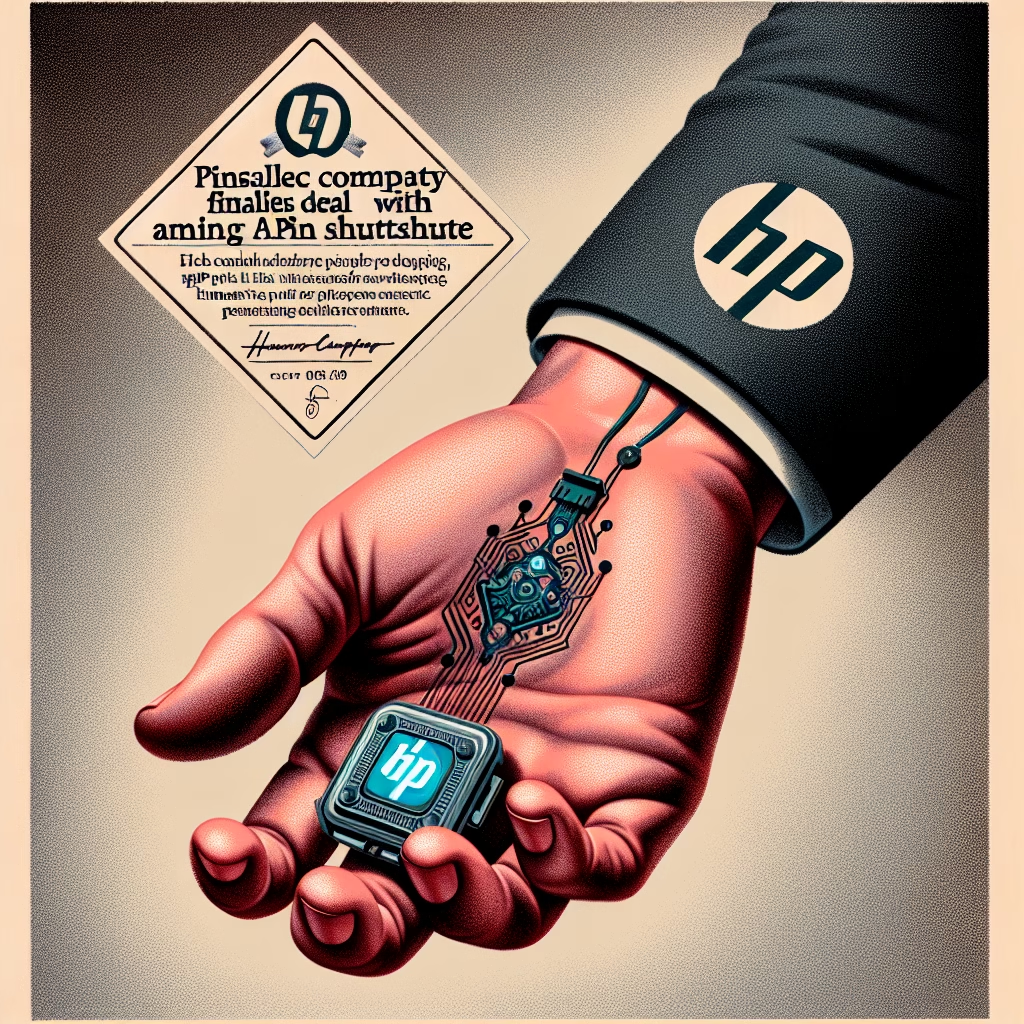HP Acquires Humane: AI Pin Discontinued Amid Struggles
In a surprising turn of events, HP has officially acquired Humane, the once-promising startup behind the AI-powered wearable device, the AI Pin. However, with this acquisition comes another major development—Humane’s AI Pin is being discontinued. This marks the end of a highly anticipated product that struggled to gain traction in the competitive AI and wearable technology market.
Humane’s Vision and the Rise of the AI Pin
Founded by former Apple employees, Humane launched with a grand vision: to create a revolutionary AI-powered device that could replace smartphones. Their flagship product, the AI Pin, was designed as a screen-free, voice-controlled wearable that allowed users to interact with artificial intelligence seamlessly.
The AI Pin was marketed as a device that could:
- Replace smartphones by offering AI-driven assistance
- Provide instant information and voice-based navigation
- Enhance productivity with advanced AI algorithms
- Deliver a futuristic, hands-free user experience
Despite this ambitious vision, the product failed to deliver on many of its promises, leading to poor sales and negative user feedback.
Challenges Faced by Humane and the AI Pin
While Humane’s AI Pin garnered excitement upon announcement, several challenges hindered its success:
1. Unfinished Software and Performance Issues
One of the biggest complaints from consumers was the AI Pin’s inconsistent performance. The device often faced:
- Slow response times
- Connectivity issues
- Limited AI capabilities compared to smartphones
2. Competition from Established Tech Giants
Humane was competing against industry giants like Apple, Google, and Samsung—all of which were integrating AI features directly into their existing products. With smartphones evolving rapidly, users saw little incentive to switch to a standalone AI wearable.
3. High Pricing and Poor Consumer Adoption
The AI Pin was priced at a premium, making it hard for consumers to justify the purchase—especially when the functionality did not meet expectations.
4. Lack of a Clear Market Fit
While the AI Pin was an innovative concept, its practical use cases remained unclear. Many early adopters struggled to integrate it meaningfully into their daily lives.
HP’s Acquisition of Humane
HP has officially stepped in to acquire Humane, a move that signals the end of the AI Pin as a standalone product. According to reports, HP’s primary interest lies in Humane’s underlying technology and AI expertise rather than the AI Pin hardware itself.
There are several reasons why HP might have been interested in this acquisition:
- AI Integration Across HP Devices: HP likely sees potential in integrating Humane’s AI capabilities into its existing products, such as PCs, printers, and enterprise solutions.
- Wearable and AI-driven Future: While Humane struggled with execution, the core idea of AI-powered wearables remains intriguing. HP could explore new directions in AI accessories or smart devices.
- Talent Acquisition: Humane’s team consists of skilled engineers and AI specialists, a valuable asset for HP as it looks to expand its AI initiatives.
What Happens Next for Humane’s AI Pin Owners?
With the AI Pin being discontinued, existing users face questions about continued support. Typically, when a tech product is phased out, companies provide limited software updates and support for a set period. However, it’s unclear how HP will handle this transition.
Potential concerns for current AI Pin owners include:
- Software updates and bug fixes possibly coming to an end
- Cloud-based AI features being shut down
- Customer support for troubleshooting becoming limited
Users who invested in the AI Pin may need to seek alternative AI-integrated solutions in the market.
What This Means for the AI Wearable Industry
The downfall of Humane’s AI Pin adds another chapter to the challenge of launching AI-powered wearables. While AI continues to dominate discussions in tech innovation, the failure of the AI Pin highlights key factors companies must consider:
1. The Importance of a Strong Market Fit
Tech startups and major corporations often struggle when introducing entirely new hardware categories. Consumers need a clear, compelling reason to adopt a new device.
2. AI and Wearables Are Still Developing
AI-powered wearables are in their early stages. While voice assistants like Siri and Alexa are widely used, fully replacing a smartphone with an AI wearable remains a tough challenge.
3. Competition Is Intense
Any new AI-focused hardware must compete against dominant tech players with established ecosystems. Humane faced difficulties challenging companies that continuously evolve smartphone technology.
What Comes Next for HP?
Although HP’s acquisition of Humane spells the end for the AI Pin, it opens opportunities for future developments:
- AI-Powered HP Products: HP could integrate AI into upcoming laptops, desktops, or even smart office solutions.
- Wearable Tech Redefined: If HP chooses to continue developing AI wearables, it might take a different approach with more refined hardware and software.
- Stronger AI Research and Development: Acquiring Humane means access to valuable AI research, potentially leading to collaborations or product innovations down the line.
Final Thoughts
The acquisition of Humane by HP signals a shift in the future of AI-powered consumer technology. While the AI Pin itself is being discontinued due to market struggles, its core AI concepts might find new life under HP’s expansive ecosystem.
This development also serves as a lesson for startups and established companies alike—innovation alone isn’t enough. A product must be well-optimized, priced competitively, and meet real user needs to achieve lasting success.
As AI technology continues to evolve, the industry eagerly awaits HP’s next move in the AI-driven device landscape. Whether HP ventures into AI wearables or enhances its existing product lineup with advanced AI, this acquisition could mark the beginning of a new era in AI-powered computing.
< lang="en">







Leave a Reply